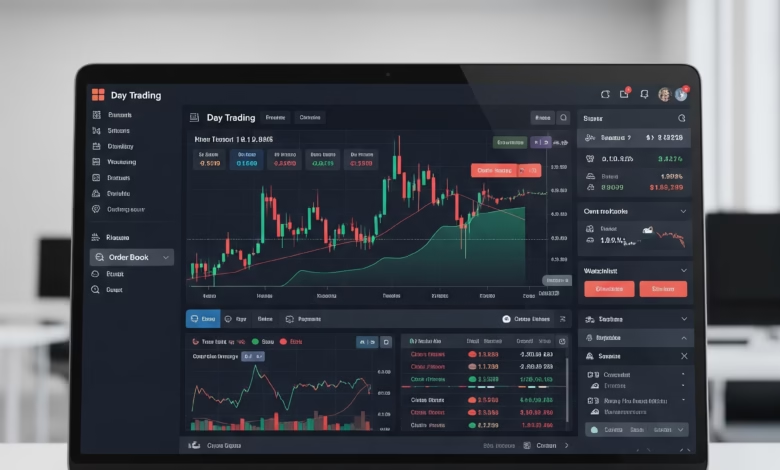7 Signs You’re Taking Out a Loan on Impulse
Know some signs that you are taking out an unnecessary loan

In our fast-paced world, quick solutions are often tempting. When financial pressures hit, the allure of an instant loan can be incredibly strong. However, borrowing money impulsively, without careful consideration, can lead to serious long-term financial problems. Are you about to make a hasty decision? This article will reveal 7 clear signs that you might be taking out a loan on impulse and how to hit the brakes before you regret it.
What is an Impulse Loan? Understanding Hasty Borrowing Decisions

An impulse loan is exactly what it sounds like: borrowing money without sufficient thought, research, or a clear, sustainable repayment plan. It’s often driven by immediate emotional needs, a sudden desire, or an urgent (but not always critical) financial gap, rather than a well-reasoned financial strategy. These loans can seem like a quick fix, but they often lead to a cycle of debt and increased financial stress down the line.
Sign 1: You Haven’t Compared Lender Offers – Are You Settling for the First Option?
One of the biggest red flags of impulse borrowing is signing up for the first loan offer you see. Reputable financial advice always emphasizes shopping around.
- No Comparison Shopping: You haven’t checked interest rates, fees, and terms from at least 3-5 different lenders (banks, credit unions, online lenders).
- Ignoring the APR: You’re only looking at the advertised interest rate and not the Annual Percentage Rate (APR), which includes all costs.
- Lack of Research: You haven’t read reviews or researched the lender’s reputation.
Taking the first offer without comparison means you’re likely missing out on better terms, lower interest, and potentially saving hundreds or thousands of dollars over the life of the loan.
Sign 2: The Loan Purpose is Vague or Non-Essential – Is It a “Want” Not a “Need”?

Impulse loans are often taken out for non-essential items or unclear reasons, rather than true financial emergencies or strategic investments.
- Funding a “Want”: You’re borrowing for a vacation, new gadgets, expensive clothing, or a fancy dinner, rather than a critical need.
- No Clear Budget for Spending: You don’t have a specific plan for how the money will be spent, or you’re using it to cover general overspending.
- “Keeping Up with the Joneses”: Your motivation is to match someone else’s lifestyle or purchase, driven by social pressure.
Loans should ideally be for investments (like education or a home), emergencies, or consolidating existing high-interest debt responsibly.
Sign 3: You Haven’t Created a Repayment Plan – Do You Know How You’ll Pay It Back?
This is perhaps the most critical sign of impulse borrowing. A responsible borrower always knows exactly how they will repay the loan without straining their finances.
- No Budget Adjustment: You haven’t adjusted your current budget to accommodate the new monthly loan payment.
- Relying on Future Income: You’re counting on a bonus, a raise, or a new job that isn’t guaranteed to cover the payments.
- Ignoring Existing Debts: You’re taking on new debt without considering how it impacts your ability to manage current financial obligations.
A clear, realistic repayment plan is essential. If you don’t have one, you’re likely setting yourself up for financial stress and potential default.
Sign 4: You Feel Pressured to Apply Immediately – Is It a “Limited Time Offer”?

High-pressure sales tactics are a classic sign of predatory lending and a huge red flag for impulse decisions.
- “Act Now” Mentality: The lender is urging you to sign immediately, emphasizing “limited-time offers” or “last chance” deals.
- Ignoring Your Questions: The lender dismisses your concerns or rushes you through the agreement without full explanation.
- Unusual Urgency: You feel a strong, irrational need to get the money right away, even if the situation isn’t a true emergency.
Never let a lender or your own emotions pressure you into a financial decision. Take your time, do your research, and walk away if you feel uncomfortable.
Sign 5: You’re Hiding the Loan from Loved Ones – Is It a Secret?
Financial secrets, especially involving debt, are a strong indicator that you know deep down it might not be a good idea.
- Lack of Transparency: You’re not discussing the loan with your partner, family, or trusted financial advisor.
- Feeling Guilty or Ashamed: You feel the need to conceal the borrowing, suggesting you’re aware it’s not a financially sound decision.
- Avoiding Accountability: You’re making a solo decision that could impact others without their input.
Open communication about financial decisions is vital, especially when it comes to taking on new debt.
Sign 6: You Haven’t Considered Alternatives – Is a Loan Your Only Option?

An impulse borrower often jumps straight to a loan without exploring other, potentially less costly, financial solutions.
- No Emergency Fund: You don’t have an emergency savings fund to cover unexpected expenses.
- Ignoring Budget Cuts: You haven’t considered cutting down on non-essential expenses to free up cash.
- Skipping Other Resources: You haven’t explored options like selling unused items, negotiating payment plans with creditors, or seeking help from non-profit credit counseling services.
A loan should often be a last resort, not the first solution, for non-critical financial needs.
Sign 7: You Feel Anxious or Regretful After Applying – Is It a Gut Feeling?
Your gut feeling is a powerful indicator. If you feel uneasy or regretful right after submitting an application, it’s a significant warning sign.
- Buyer’s Remorse (Borrower’s Remorse): You feel a sense of dread or discomfort after taking the plunge.
- Difficulty Sleeping: The thought of the new debt keeps you up at night.
- Ignoring Warnings: You’re pushing aside internal or external warnings about the decision.
Trust your intuition. If something feels off, it probably is. It’s better to cancel a loan application (if possible) or work on a quick repayment strategy than to live with long-term financial regret.
How to Avoid Impulse Loans: Take a Deep Breath and Plan
If any of these signs resonate with you, it’s time to pause. Here’s how to prevent impulse borrowing:
- “Sleep on It”: Never make a major financial decision immediately. Give yourself at least 24-48 hours to think clearly.
- Create a Detailed Budget: Understand where your money goes and identify areas to cut expenses.
- Build an Emergency Fund: Aim for 3-6 months of living expenses saved to cover unexpected costs without resorting to loans.
- Compare, Compare, Compare: Always shop around for the best rates and terms.
- Seek Trusted Advice: Talk to a financial advisor, a credit counselor, or a financially savvy friend/family member.
- Address the Root Cause: Instead of just borrowing, figure out why you need the money. Is it a spending problem, insufficient income, or a true emergency?
By recognizing the signs of impulse borrowing and implementing these preventative measures, you can make smarter, more responsible financial decisions that support your long-term financial health.





